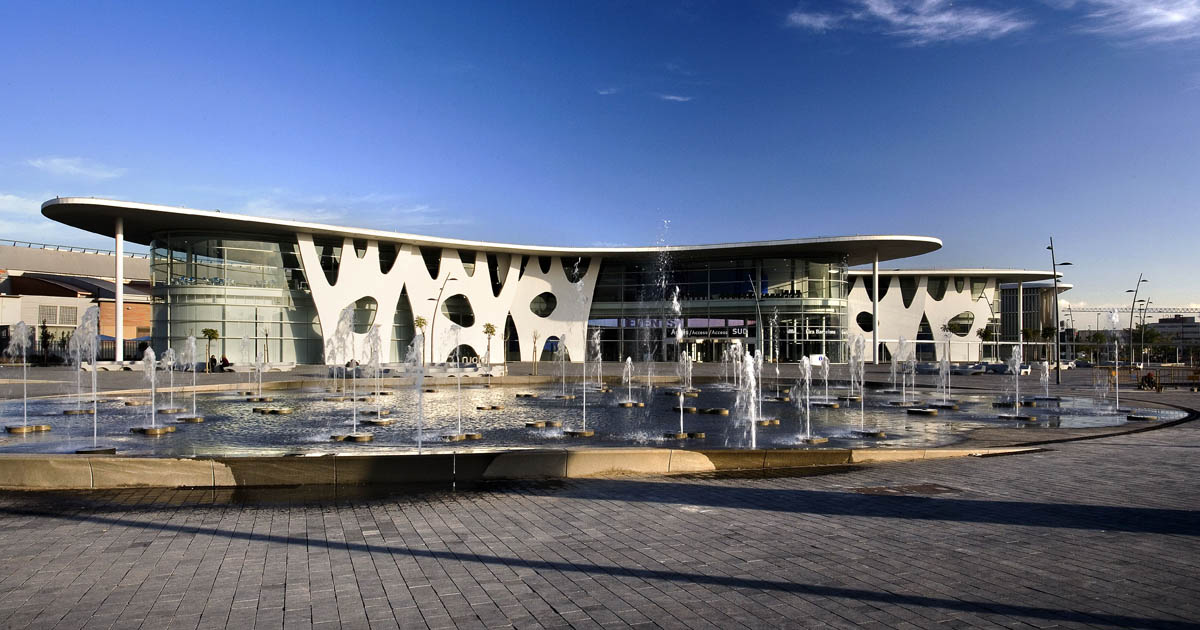A few days ago, Mobile World Congress was held again in Barcelona. The first real MWC for 3 years, since the pandemic turned the Fira into a lost place for 2 years. Along with CES and IFA, the MWC has always been a symbol for the latest technology. Reason enough for our columnist Markus Sekulla to take a closer look at the devices and gadgets presented in 2022.
 Copyright: Fira de Barcelona
Copyright: Fira de Barcelona
Nothing beats the MWC in Barcelona, which is mainly due to the lastest launches in the tech world and more importantly for some, the always friendly weather at the Mediterranean Sea, which made winter-ridden tech journalists and enthusiasts’ pilgrimage to the Catalan capital every year. This year it was the same again. Although the organizers counted 60,000 visitors at MWC 2022, just under half of 2019 (109,000), but of course this did not detract from the friendliness of the country, the people and the trade fair visitors. Everywhere, people were happy that they had come together again to talk about something other than Corona. Due to the geopolitical situation at the end of February 2022, however, the mood was again very depressed and so the typical party feeling did not arise this year, either.
The MWC 2022 was almost back to same old, same old. Queues formed at interesting booths, people drove through the city to hip locations for long awaited product launches, but after many hours of a trade fair day with a mask on, most trade fair visitors were longing for the fantastic local cuisine and good drinks – Same old :)
The ongoing crises around the world were also evident in every conversation at the MWC. Hardly any industry is as dependent on international supply chains and raw materials as the tech industry. The mood here was slightly pessimistic, even among the industry's fat cats.
Also same old: New smartphones here, new smartphones there. If I’m honest, and everyone is in the industry itself, as well, there are virtually no earth-shattering innovations in the smartphone world. And that has been the status quo for a few years now. Not on MWC, nor anywhere else. A few cm more screen, a bit more battery life, more CPU, better machine learning, and so on. Even with devices from five years ago, you could take stunning pictures. And even the more noticeable changes, such as foldable displays, don't seem like the innovation of the year either. I feel we need more innovation than that.
Some companies, such as Mymanu, are trying their hand at devices that have functions like smartphones, but no longer have screens; they can only be controlled via voice. Sounds innovative, but we still need more innovation.
The perennial favorite when it comes to innovation: the Metaverse. I’m still critical about the areas of application and whether I need more digital worlds outside of zoom calls. But I was also born in 1980 and always have to put up with the reproach from younger people that I somehow don't understand it all either. I'm happy to concede that.
What I do know - and this is something the younger people have to concede - is that the necessary technical infrastructure is not keeping up with the Metaverse hypetrain. That became clear at MWC. Somehow, the situation resembles the interdependence of e-cars and the e-charging stations. Therefore, the feeling is spreading more and more among techies that the Metaverse has to go a long way before it really starts. Plus, one got the feeling that every company would like to be part of it and therefore simply stuck the Metaverse wallpaper on their booth. Free according to the motto, let's see if anyone really asks. Same like it was a few years ago with AI or 5G.
What is slowly taking shape in the Metaverse is the human interface. Companies like HTC and Lynx are making inroads with hardware that is getting better and better and that gives hope for a more digital future. In this hope, a constant queue of people eager to test the Vive Flow formed at HTC, for example.
The world doesn't need a laptop with a battery life of 28 hours or an even better camera in the smartphone. The world needs smart digital concepts that help us fight the climate crisis and make our lives easier. As in every year, there were some good approaches at the MWC, and I hope that more will come of it.
Text: Markus Sekulla
Most popular